3 Ways to Educate Your In-House Marketers and Increase Content Performance
 In-house marketing is a term used to describe a marketing strategy where jobs are not outsourced from a third party or experts outside of the organization. One of the main challenges faced by companies which choose an in-house marketing strategy is that their marketers pale in experience and knowledge compared to the third-party marketers. Here some of the most common content marketing mistakes worth paying attention to:
In-house marketing is a term used to describe a marketing strategy where jobs are not outsourced from a third party or experts outside of the organization. One of the main challenges faced by companies which choose an in-house marketing strategy is that their marketers pale in experience and knowledge compared to the third-party marketers. Here some of the most common content marketing mistakes worth paying attention to:
- Superficial analysis and research;
- Failing to attract new visitors;
- Low conversion rates;
- Not promoting your brand;
- Poor e-mail marketing.
Why does it keep happening? One reason for this is that most in-house marketers are not motivated by competition and hence do not see the need to improve their standards. This is not the case with most third-party organizations that sustain their business through content marketing. In the latter case, there is a constant need to upgrade or lose your clients to competitors. Nevertheless, the gap in knowledge and experience can be narrowed through education.

This article will outline three ways of educating marketers within an organization to produce content on par with some of the best third-party marketers.
Way #1: Online Training Programs & Certifications
You would be surprised by a large number of high-quality sources that are completely free to use! There is a bunch of educational platforms where experts, sometimes even university professors and successful business owners, share their knowledge. Usually, the certification has to be paid for. As a matter of fact, it is affordable for online students. The fee they charge would cover the certification production and transportation costs.
Below is a brief discussion on some of the online platforms, how they operate, what they offer and how their certification stacks up in the real world.
Udemy is an online platform that offers a wide variety of online courses covering topics from software development to dieting. Although Udemy courses aren’t accredited for academic use as other Massive open online courses (MOOC), they are useful in building job-related skills for both students and professionals. Another thing to consider is that the platform offers both paid and free courses depending on the tutor or instructor. Affordable courses available for those intending to boost their performance in content marketing are:
- Digital marketing
- Social media marketing with a focus on Facebook, Instagram
- PPC Advertising
- YouTube marketing and audience growth
- Google Analytics and Google Adwords
- Affiliate Marketing
- Content copywriting
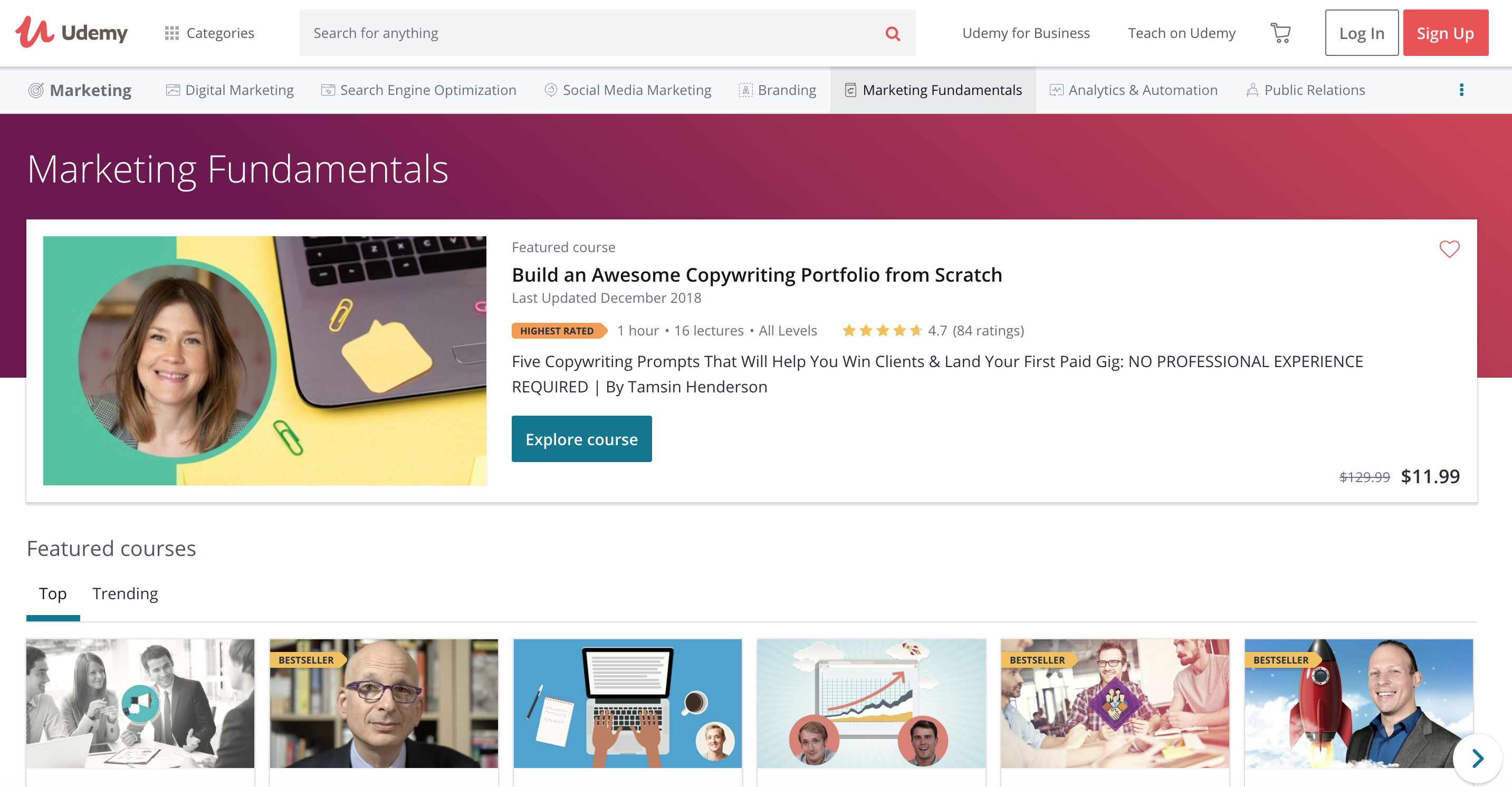
The tuition fees for each course may vary starting from $12.99. After completing a course, you will be given a certificate. This certificate cannot be used for formal accreditation since Udemy is not an accredited institution. However, it will demonstrate your achievements and help ascertain your knowledge in the chosen field.
Google Analytics Certifications – with these certifications, it is easy to measure albeit roughly your content marketing return on investment (ROI). As a content marketer, it is essential to know how your content marketing strategy is performing and what areas to improve on, what type of audience you are targeting and what they are searching for etc.

To acquire this certificate, you must enroll with the Google Analytics Academy and select a course. For beginners, you are required to start with the google analytics for beginners before advancing to the next stage. All the courses offered are free and can be completed at any time. A score of at least 80% is required in the google analytics individual qualification exams (GAIQ) to obtain a certificate.
HubSpot Academy – this is a reputable online resource platform that provides tools for learning. The academy offers training for social media marketing, content marketing, website analytics and SEO training. All certification training offered by the academy is free and recognized globally. This is because the academy is associated with many organizations worldwide.

The certifications obtained expire after a period of about 13 or 25 months depending on the type of certification and must be renewed. For content marketing, it takes a total of two and half hours to go through the course. After this, you will have access to 60 multiple choice questions which combined with the content gives an overall course length between 3 – 4 hours. Follow the link and create an account to start the journey of becoming a certified content marketer.
Essential courses that we recommend to check are as follows:
- Inbound Marketing Fundamentals
- Creating Content Clusters and Pillar Pages
- Understanding Conversions
- Applying a Customer Marketing Approach
Ahrefs blog – in today's digital marketing world, having access to an extensive website analysis tool could be all it takes to turn things around for your business. Yes, Ahrefs offers a comprehensive website analysis, keyword analysis, content analysis, backlink analysis and even competitor link intersect. But at this point, it is their unique blog with up-to-date statistics and informative posts that we want to give a closer look.
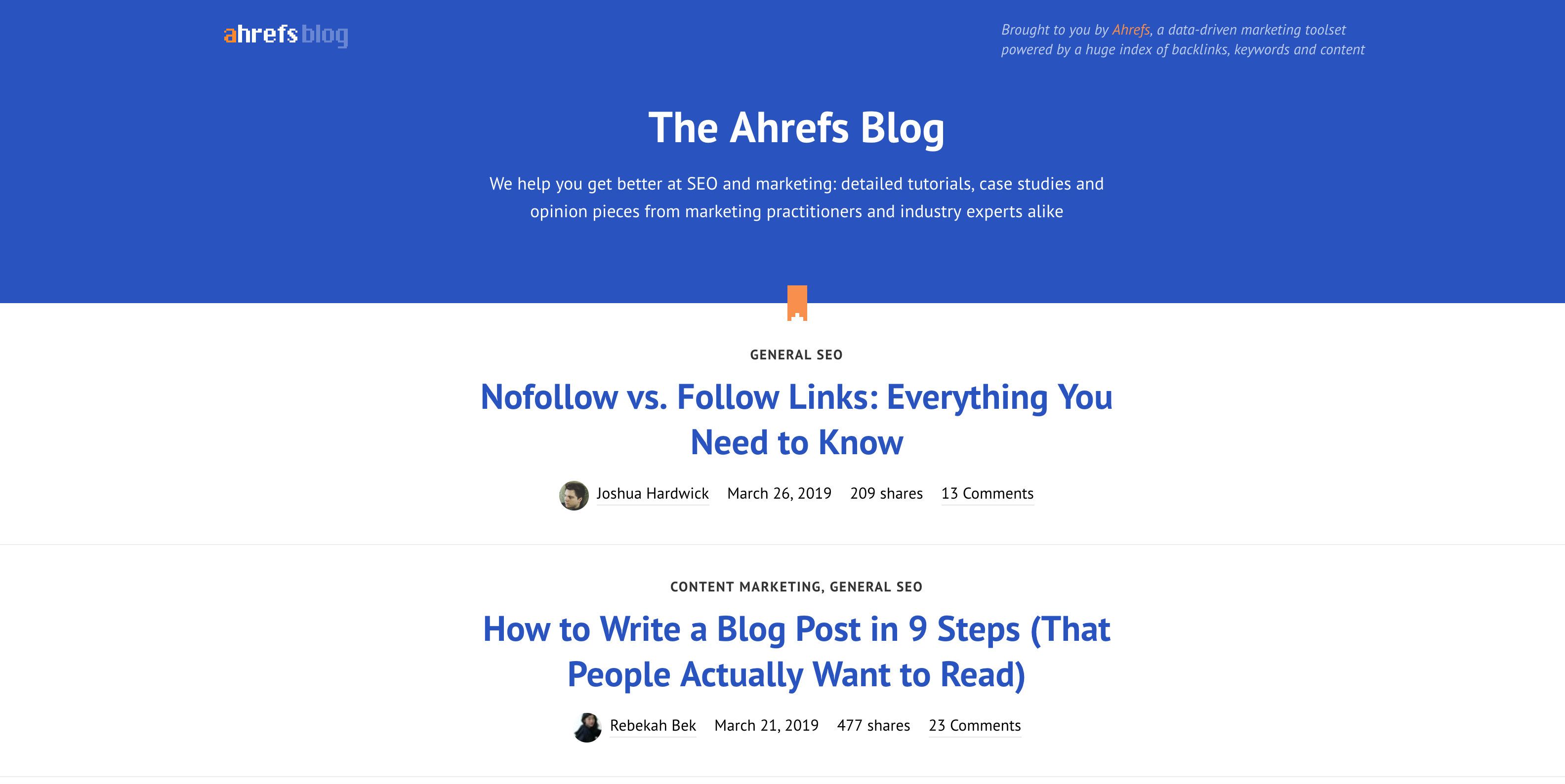
Ahrefs blog has free tutorials, case studies and a range of marketing toolsets. Although this information is free, the tool, however, goes for a price tag with the Lite version costing $99 while the Agency is priced at $999. For statistics and research data visit the link.
Coursera – this is an online learning platform similar to Udemy which offers fully accredited courses, degrees and specializations. The main difference between Coursera and Udemy is that while Udemy certificates are not accredited by any institutions for formal use, Coursera certificates are fully accredited. Coursera works with selected universities to offer full-fledged degrees accessible anywhere in the world. The courses last between four to ten weeks.
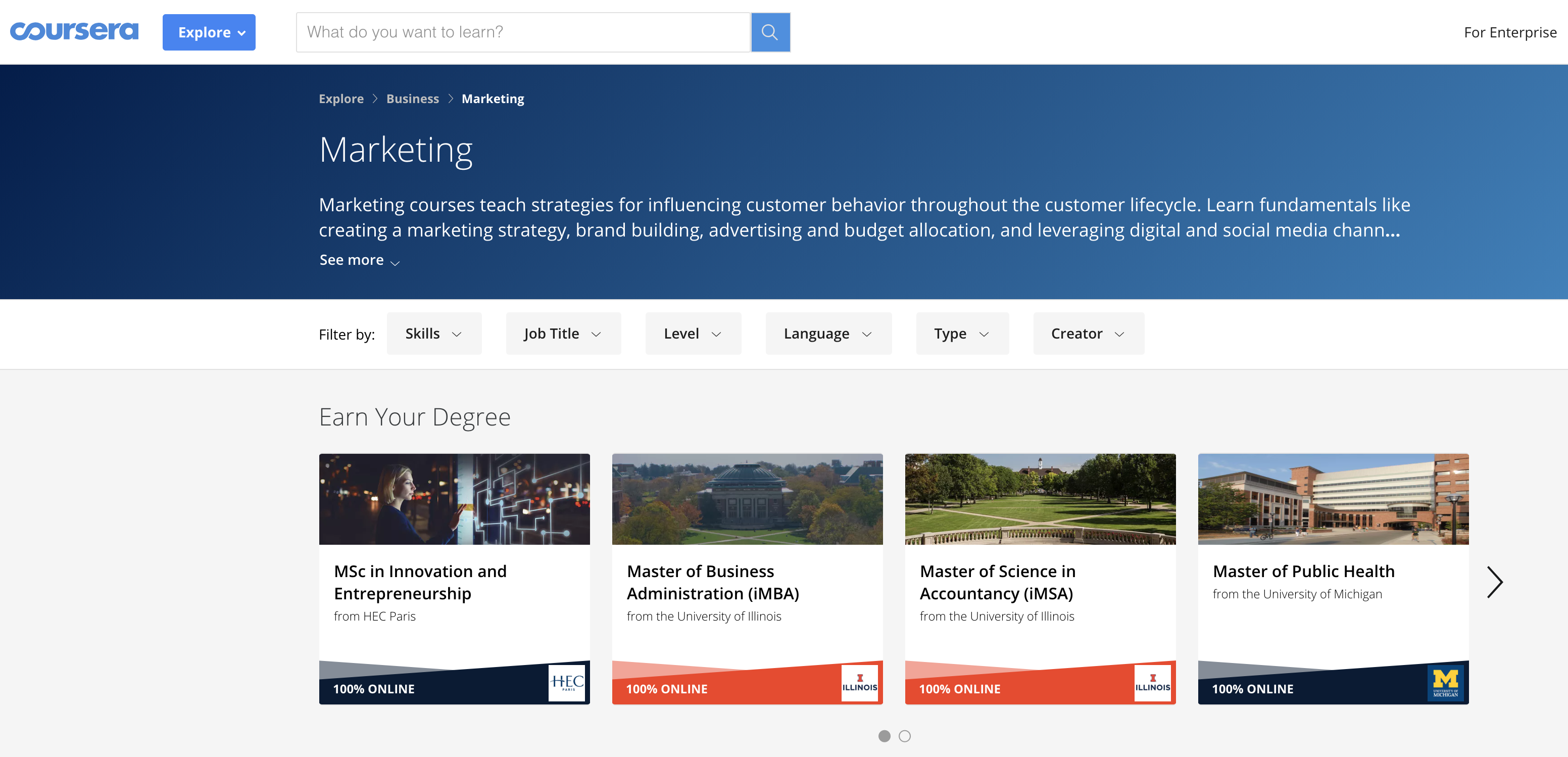
Coursera offers several courses on content marketing that are suitable both to kickstart a career in content marketing and to upgrade your knowledge. A certification from this course is a strong indication of one's’ capability as a content marketer since it is equivalent to a university degree.
Way #2: Promote Internal Training
Online courses and blogs require much time and personal motivation. Obviously, not all employees are eager to spend their spare time on education. That is why organizing a compulsory in-house training course is a great alternative to relying on the intrinsic motivation of your workers and waiting for them to improve their qualifications.

There are two ways to set up the in-house training: either ask one of the well-performing workers to share their knowledge with others or invite a freelance lecturer/tutor from the outside. First of all, check if your business already has any educated and fairly experienced workers. Potentially, such workers can be better teachers since they know how to work and succeed under these particular conditions which correspond with the conditions their ‘students’ are in.
The major advantages of internal training, as opposed to external training sessions, are:
- Cost-effectiveness – internal training is significantly cheaper for the organization compared to external training. Simply offer additional payment to an employee who has the skills and knowledge required to conduct the training session and enjoy the results. Besides, some questionable moments can be solved any time after the training since your ‘teacher’ will be there by your side tomorrow, next week and, hopefully, next month.
- Relatively small time-consumption – internal training is time-saving because the employees do not waste time commuting from work to the training centers; neither do they compromise on the communication with the person conducting the training as it usually happens during online, say, Skype sessions.

Some areas in content marketing where employers can utilize internal training are SEO and SEM strategies, copywriting, keyword research, competitor analysis, social media marketing, backlink analysis etc. It is a common practice to outsource some SEO services temporarily before all of the knowledge and skill gaps of your employees are filled. Here’s a brief list of helpful platforms:
- Love To Link is a link building service that provides manual outreach also called guest posting. They cannot provide a list of websites they work with but you can choose from a range of themed categories as it is shown on the screenshot below.
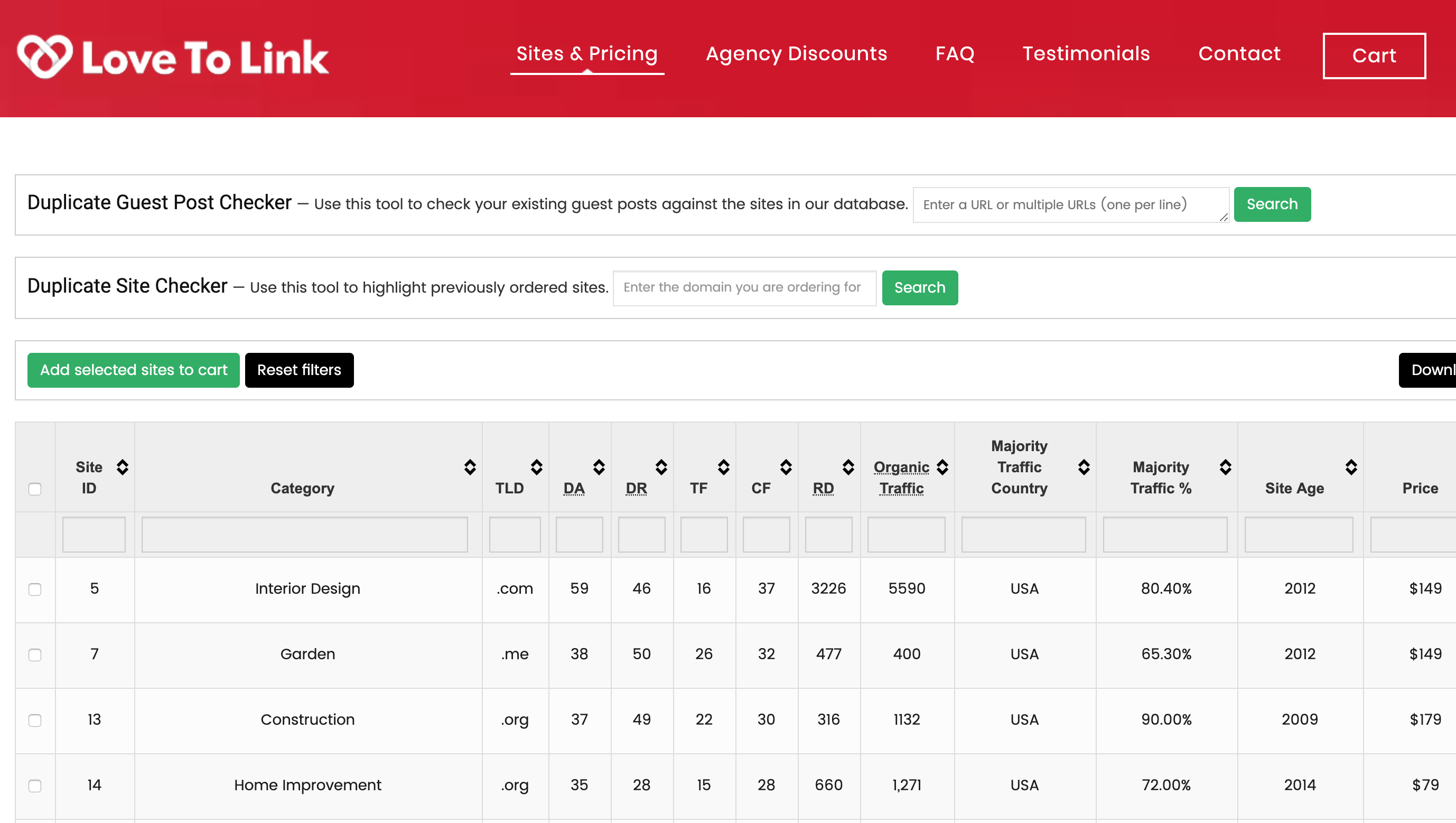
- EssayPro is an essay writing service and a trusted online platform offering not only academic writing services but also quick editing, proofreading and rewriting help. They hire freelancers with different areas of expertise and thus can help with almost any theme. Remember, engaging and informative content is the king of marketing.
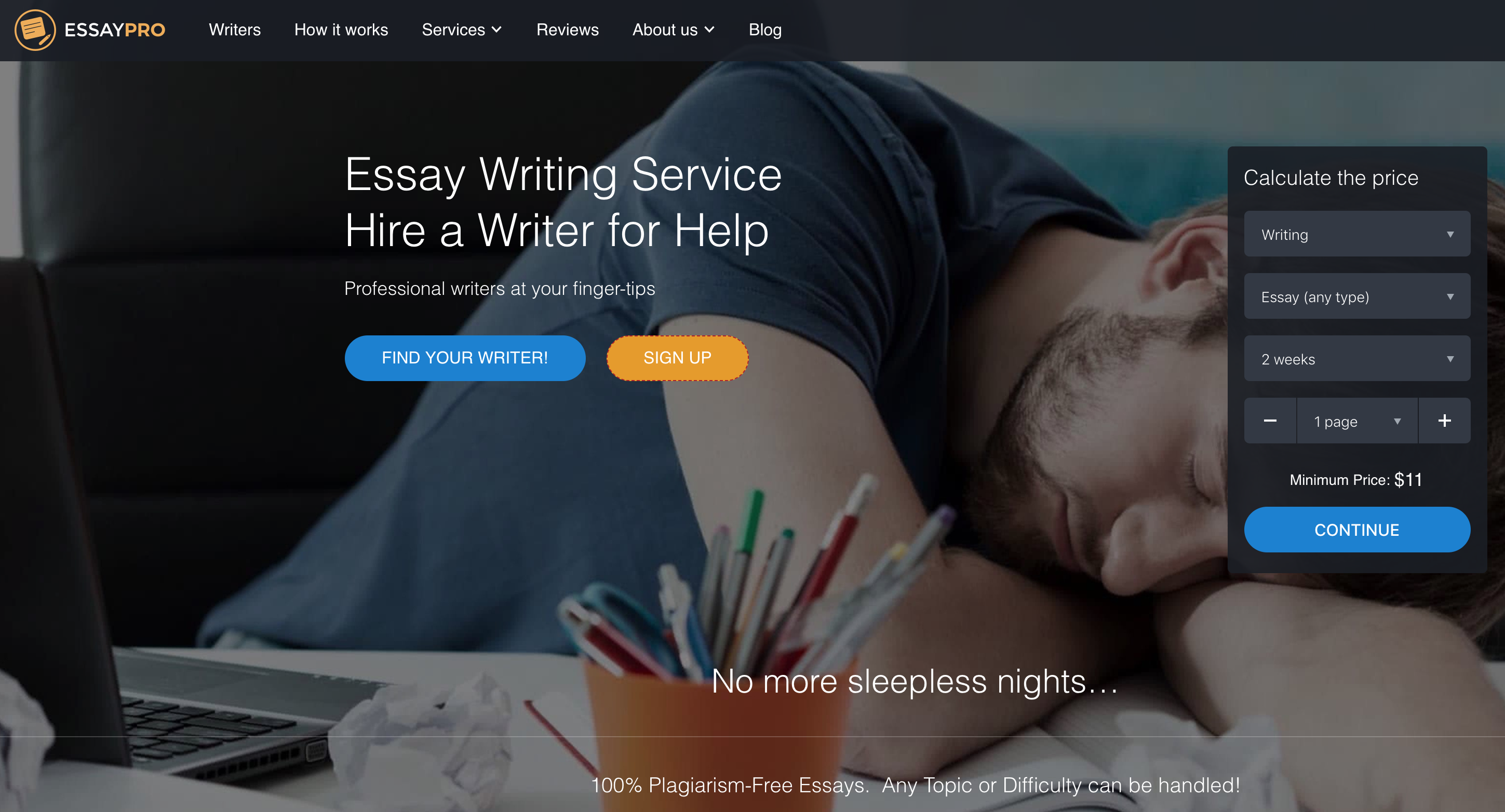
- WordStream offers pay-per-click or PPC consulting services with excellent geo-targeting and conversion tracking. These guys can help to restructure and optimize your existing text ads, as well as create new ads based on keyword matches, niche specifics and previous conversion rates.
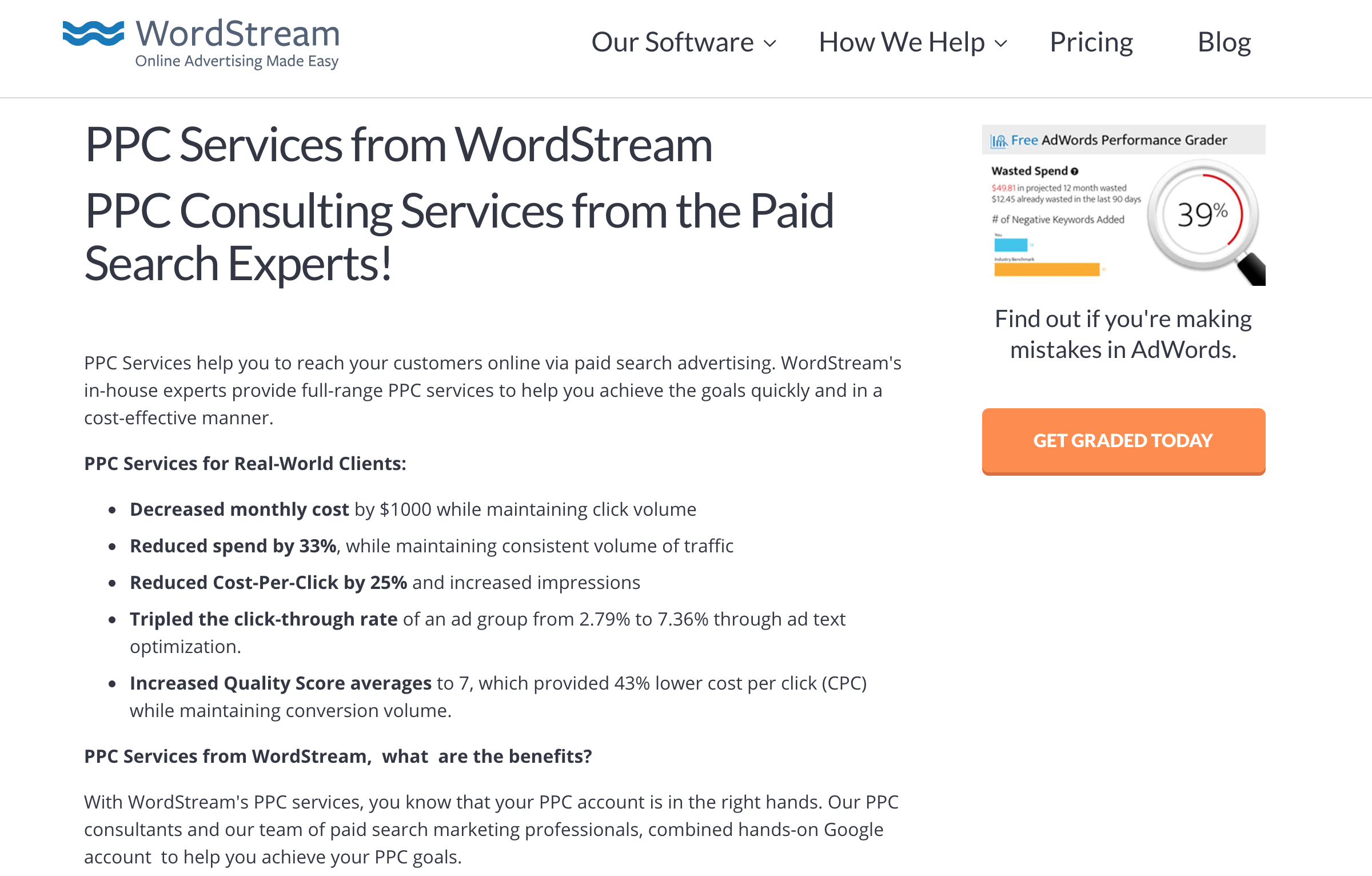
Way #3: One-Time Conferences and Seminars
Paying for conferences and seminars is another excellent way for employers and human resource managers to educate their employees. This form of external training has its own benefits. Through conferences and seminars, the employees have a chance to make sure their knowledge and work strategies are up-to-date and competitive.
Investing in the growth of your employees builds trust and loyalty towards the organization. Therefore, investing in the growth of your employees by educating them, will guarantee that your employees don’t lag behind in terms of knowledge, skill and experience. This will inevitably bring positive results, trust and confidence.
You can find a list of worthy marketing conferences here.

Conclusion
The role of in-house education is crucial in achieving optimal content performance and improving conversion rates. Analyzing your weaknesses should be followed by filling the knowledge gaps. The best way to do so is through either individual online training or in-house group meetings. Choosing the best approach depends on a number of factors:
- How many employees need to be trained?
- What is your budget?
- Can your company afford inviting external experts?
- Does the company have in-house experts able to share their experience?
Although internal training of employees is cheaper and quicker, the employers should not neglect visiting conferences and comparing their strategies with what other businesses in their niche do. One particular type of training cannot replace the other completely. Nevertheless, Investing time and efforts into training your stuff will definitely pay off.



0 Comments